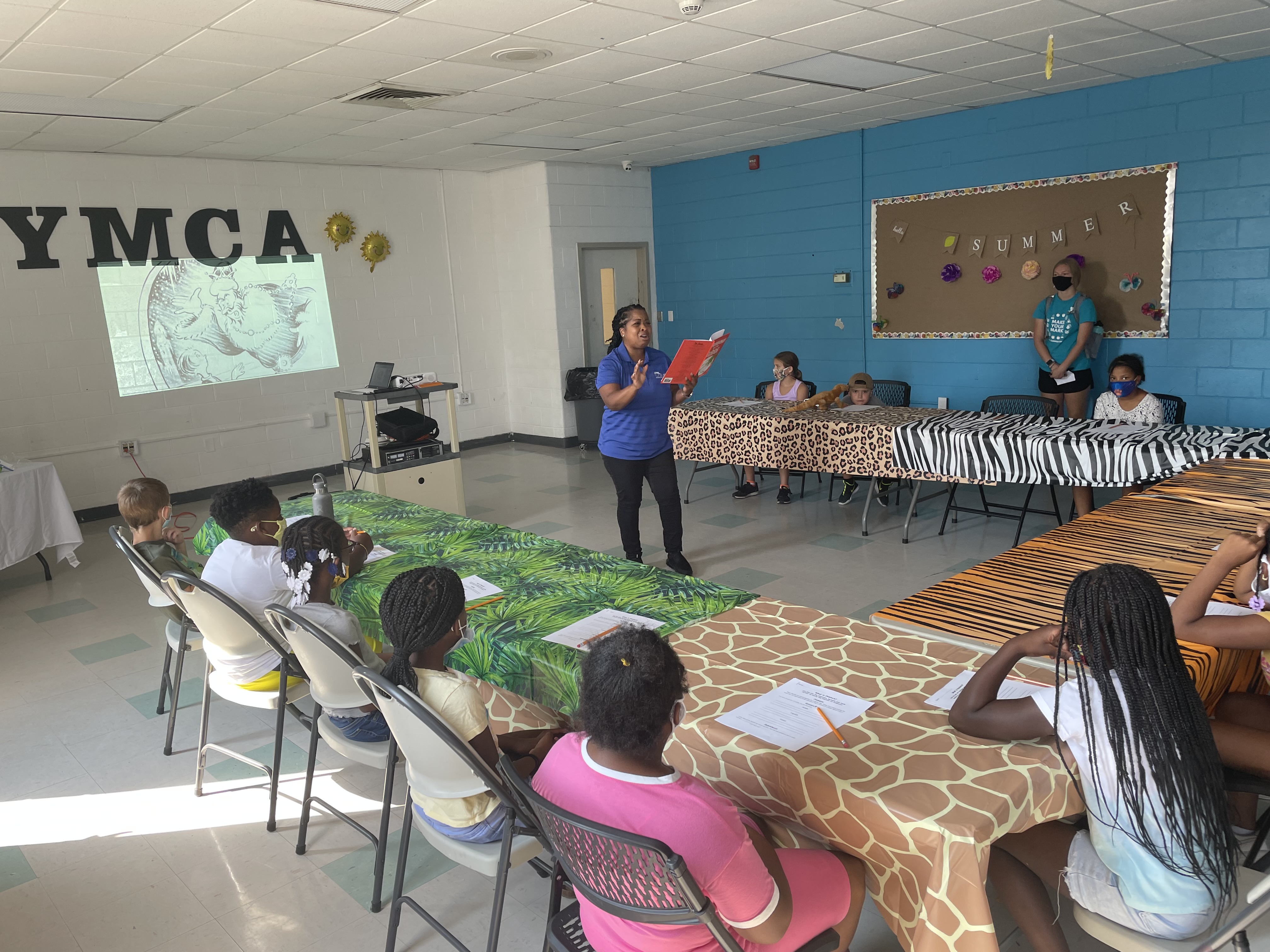The Science Education team at Jefferson Lab uses a beloved Dr. Seuss classic to help teach the scientific method to campers at fourteen Peninsula YMCAs
NEWPORT NEWS, VA –There is a recurring scene in the classrooms of local YMCAs. Young summer campers are posed with a simple question: “What is oobleck?” They write down their thoughts detailing the color, shape, size, consistency and more. The next day, a camp counselor trained by the U.S. Department of Energy’s Thomas Jefferson National Accelerator Facility Science Education team leads campers through the process of making their own oobleck. Nearly 700 campers will complete the fun activity, which features the scientific method and is designed to introduce campers to critical thinking, concept application and data reporting.
Oobleck is a sticky, green substance that falls from the sky in the Dr. Seuss classic: Bartholomew and the Oobleck. The substance also serves as the centerpiece of a lesson that teaches learners the principles of the scientific method after they read the book. Made up of water, glue, Borax and a touch of food coloring, the campers are asked what they think the state of matter will be when they are done mixing the ingredients.
“Most campers guess that by combining all three ingredients, the oobleck will resemble liquid,” says Rhonda Bell, a Science Education administrator for Jefferson Lab.
“However, they start to see the evolution of the oobleck, where physical and chemical changes begin to take place. It is then revealed that oobleck is actually what is known as a colloidal suspension, or a substance that has the properties of two states of matter,” Bell shares.
The Oobleck STEM activity is part of the YMCA STEM Fair within the summer camp program offered at the YMCA. The event was born from local educators dedicated to finding ways to stop “summer slide;” a phenomenon caused by the lack of mental stimulation students sometimes experience when they are out of school for their summer break.
“Incorporating STEM activities like the Oobleck STEM activity allows the campers to put their ideas to the test and experience science in motion inspired by literature,” says Caitlyn Leavens, childcare executive for the YMCA of the Virginia Peninsulas.
“Through the YMCA STEM Fair, each camper is given the opportunity to experience not only the magic of summer camp, but also the magic that comes with the cumulative combination of arts, humanities and science. We hope to continue this collaboration well into the future,” adds Leavens.
The YMCA STEM Fair launched in 2013, with the Jefferson Lab Science Education team joining the initiative in 2015. To learn more about YMCA Summer Camp, click here. To learn more about the Jefferson Lab Science Education team, click here. To recreate the oobleck experiment, click here.
Contact: Rebecca Duckett, Jefferson Lab Communications Office, duckett@jlab.org, 757-679-7575
ABOUT THE YMCA OF THE VIRGINIA PENINSULAS
The YMCA of the Virginia Peninsulas is a cause-driven charity, strengthening communities on the Virginia peninsulas for over 120 years through youth development, healthy living, and social responsibility. Across the Association, 18 facilities engage 50,000+ men, women, and children — regardless of age, income, or background — to nurture the potential of children and teens, improve our community's health and well-being, and provide opportunities to give back and support neighbors. The YMCA of the Virginia Peninsulas has long-standing relationships and physical presence not just to promise but to deliver lasting personal and social change. www.ymcavp.org


